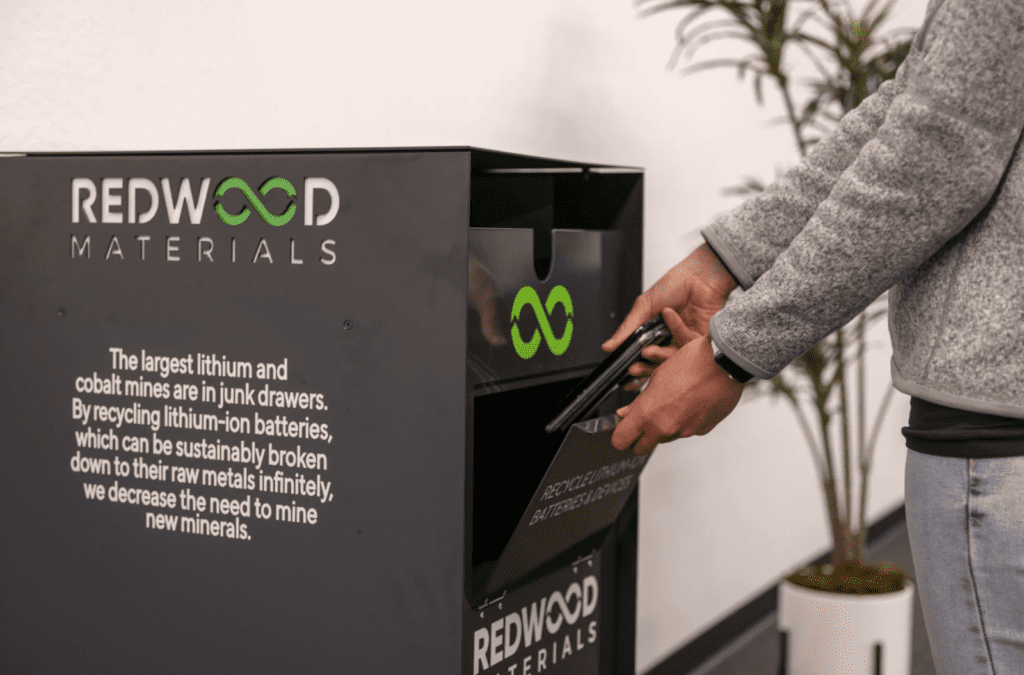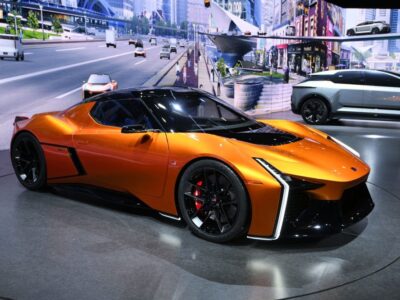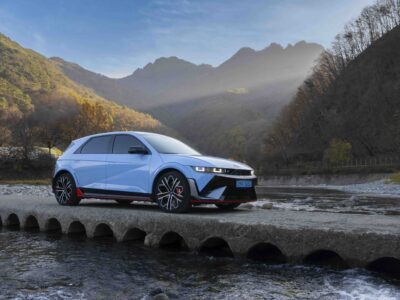If you have an old portable DVD player in your closet collecting dust, it’s probably time to get rid of it. However, the proper disposal of electronics is difficult, as few municipalities have upscale electronics recycling centers. Still, unused devices have a lot to offer.
Redwood Materials recognizes this and is urging Audi customers to drop off any old electronics. Their goal: use the materials for electric vehicle (EV) batteries.
Launched in November 2022, the Consumer Recycling Program is an innovative campaign created by Audi and Redwood. Any old rechargeable device you no longer use can be dropped into designated bins at select Audi dealerships. The goal is to bring in more recyclable sources of lithium. Some examples include cell phones, portable gaming devices, and any rechargeable batteries.

Photo Courtesy Redwood Materials
It could not have come at a better time. Lithium sourcing has faced supply chain issues and geopolitical problems, which have slowed EV production. With global demand expected to grow by 500% in the next 10 years, a more sustainable supply chain is needed.
Lithium-ion batteries are made of recyclable minerals and are viable even after years of use. Since metal atoms don’t degrade or change over time, the materials can be transferred without any drop in performance or life. Dated electronics also contain nickel, cobalt, copper, and nickel — valuable materials for EV battery production.
“Redwood and Volkswagen Group of America share a vision to create a domestic, circular supply chain for batteries that will help improve the environmental footprint of lithium-ion batteries, decrease cost, and, in turn, increase access and adoption of electric vehicles,” said JB Straubel, co-founder and CEO of Redwood Materials.
The Consumer Recycling Program eases the reliance on imported lithium. While it doesn’t address all the supply chain issues, every little bit helps ramp up EV production.
According to the U.S. Department of Energy’s Argonne National Laboratory, the effectiveness of recycled batteries is just as good as novel lithium-ion cathodes. The laboratory concluded “pristine performance can be readily obtained” from recycled metals. It even has a higher capacity for a returned charge, along with lower resistance to direct current electricity. So, EVs with recycled batteries may perform better than bespoke models.

Photo Courtesy Bob Osias
The Consumer Recycling Program addresses another issue: establishing lines of electronic device recycling. Currently, less than 5% of lithium-ion battery-containing devices are recycled. Many end up in landfills, leaking into the soil. Redwood and Audi see an opportunity to create pathways for consumers to efficiently recycle their devices while supporting a noble, sustainable cause.
With the Inflation Reduction Act establishing a Clean Vehicle tax, this campaign will allow manufacturers to take advantage of significant tax breaks. However, EV batteries must be produced on American soil to take full advantage of these breaks. Since most of the global lithium supply comes from Australia, having a more direct line is crucial.
Audi has expressed massive optimism about this venture with Redwood. “The partnership with Redwood Materials offers a groundbreaking vision for helping to ensure electric vehicles operate not only without tailpipe emissions but with a renewable purpose,” said Spencer Reeder, director of government affairs and sustainability for Audi America.





